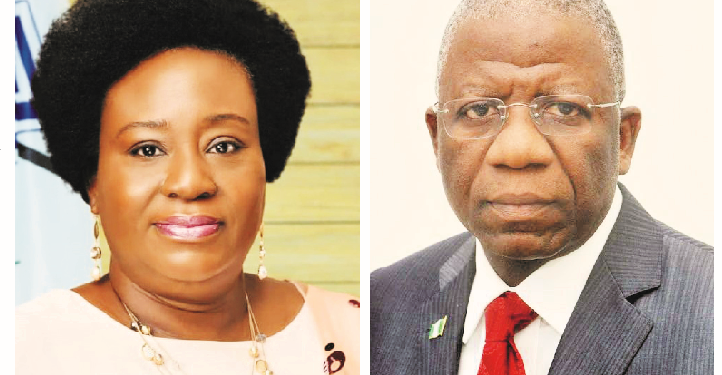The recent directive by President Bola Tinubu for the implementation of the Oronsaye Report is a welcome development for Nigeria’s governance structure. We say this in the hope that external pressures will not stymie its take off.
This report, which was first submitted in 2012 by a former Head of Service, Stephen Oronsaye, presents a blueprint for restructuring federal government agencies and commissions to enhance their effectiveness and efficiency.
Its recommendations, on the face value, aim at making the civil service run seamlessly so as to remove the duplication of functions and, most importantly, reduce operational costs – goals that have become increasingly crucial in the face of Nigeria’s economic challenges.
For far too long, successive administrations have paid lip service to the implementation of the report with former Presidents Goodluck Jonathan and Muhammadu Buhari issuing similar directives that ultimately yielded little tangible progress leading many Nigerians to greet President Tinubu’s directive with a cautious optimism, in the light of past tardiness.
Regardless, this newspaper is optimistic that with the sense of urgency and determination so apparent, the report’s recommendations get off to a good start.
It noteworthy, however, that lawmakers have rightfully raised concerns about the report’s relevance without a thorough review to reflect the realities of 2024. Additionally, new agencies have been created since 2012, necessitating an updated assessment of their purpose and potential overlaps with existing structures.
The Report’s proposal to merge, scrap, and relocate various government agencies is a pragmatic approach to addressing the bloated and often duplicative nature of Nigeria’s bureaucracy.
By consolidating overlapping functions and eliminating redundancies, the government can significantly reduce operational costs and improve service delivery.
In our considered opinion, this streamlining process is particularly crucial in the light of current economic challenges, where every naira saved can be redirected towards more pressing national priorities.
However, the implementation of the Report must not be a mere exercise in merging or scrapping agencies. It should serve as a catalyst for a broader overhaul of Nigeria’s governance structure, one that extends beyond the federal level and encompasses both the executive and legislative and even judicial branches.
The report’s recommendations provide an opportunity to reassess the necessity and efficiency of various government entities, ensuring that they serve the interests of the Nigerian people effectively and efficiently.
In our view ,one area of particular concern is the size and cost of governance at all levels. President Tinubu’s plan to appoint 48 ministers during a period of austerity raises eyebrows, as does the presence of over 20 aides to the President, many of whom may have overlapping roles.
Similarly, the need for a unicameral legislature should be critically examined, as a streamlined legislative body could potentially yield significant cost savings.
Moreover, the drive to reduce the cost of governance should not be limited to the federal level alone.
States and local governments, often notorious for mirroring the inefficiencies of the center, need to do their part in downsizing their governance structures.
We insist that state and local governments must also take proactive measures to cut unnecessary expenditures and streamline their operations.
This collective effort ensures a more holistic approach to tackling the issue.
Pointedly, the burden of sacrifice should not fall solely on the masses; it is imperative that the political class at all levels lead by example and demonstrate a genuine commitment to fiscal responsibility.
Implementing the Oronsaye Report is not a panacea for Nigeria’s governance challenges, but it represents a crucial first step towards a leaner and more efficient government apparatus. By reducing redundancies, eliminating waste, and fostering accountability, its recommendations can help optimize resource allocation and enhance service delivery to the Nigerian people.
However, the success of this endeavor hinges on sustained political will, transparency, and a genuine commitment to reform. The government must engage stakeholders, including civil society and the private sector, to ensure a comprehensive and inclusive implementation process.
Additionally, measures must be put in place to monitor and evaluate the progress of the restructuring efforts, ensuring that tangible results are achieved and maintained over time.
Ultimately, implementing the Oronsanye Report serves as a positive, albeit incomplete, step towards a more efficient and cost-effective government.
A comprehensive approach, however, demands a critical review of the report, a multi-pronged attack on bloated structures across all levels of government, and a genuine commitment to shared sacrifice from both the political class and the public.
Only then can we transform the glimmer of hope into tangible progress towards a more sustainable and efficient governance system in Nigeria.
It is time for Nigeria to embrace this chance for reform and pave the way for a more prosperous and well-governed nation.



